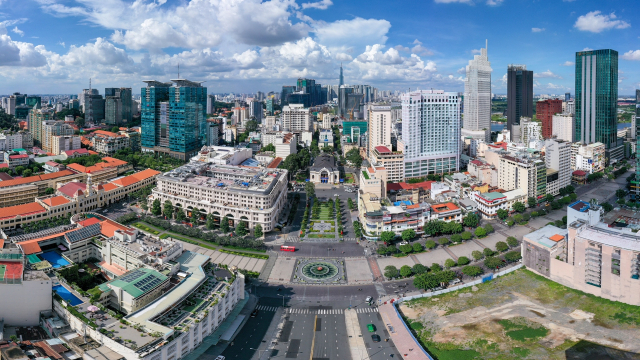Leader Talk
Fiscal policy should take the lead in policy support
The headline fiscal deficit is projected to widen moderately this year.
Spurred by an impressive vaccination drive and accommodative policies, Vietnam economy is rebounding from a severe pandemic wave in 2021.
Nonetheless, the recovery has been uneven so far, with the service sector still lagging, while financial risks and inequality have likely risen, stated by Era Dabla-Norris, division chief in the IMF’s Asia Pacific Department and mission chief for Vietnam.
The recovery is projected to strengthen, supported by the recently-approved program for recovery and development (PRD). Growth is projected at 6.0 per cent this year and 7.2 per cent in 2023.
The conflict in Ukraine is expected to have a moderate impact on the pace of the recovery and inflation. Despite rising commodity prices, inflation has been contained and is expected to remain below the authorities’ 4 per cent target partly reflecting the remaining economic slack.

However, she emphasized that the outlook is subject to significant risks. Growth risks are tilted to the downside while inflation risks are tilted to the upside. The most immediate risks include the intensification of geopolitical tensions and a slowdown in China. Other risks include a tightening of global financial conditions and developments in the domestic real estate and corporate bond markets.
She recommended that policymaking should be agile, and the size and composition of policy support proactively adjusted to the pace of recovery.
“Fiscal policy should take the lead in policy support, especially if downside risks materialize as the scope for further monetary easing is limited in light of rising inflation risks”.
In addition, efficient and steadfast implementation of the PRD will be key to supporting growth. The PRD appropriately prioritizes health, economic recovery, and medium-term growth prospects.
Going forward, fiscal policy will need to strike a balance between providing temporary, targeted support and facilitating economic transformation. The headline fiscal deficit is projected to widen moderately in 2022.
She noted that monetary policy should remain vigilant to rising inflation pressures. If sustained inflation pressures emerge, the SBV should tighten its monetary policy stance and clearly communicate the underlying drivers to help contain inflation. Credit growth policy must strike a reasonable balance between promoting the recovery and safeguarding financial stability.
Strengthening the resilience of the banking sector is essential for sustainably supporting medium-term growth. Relaxation of loan classification and provisioning rules should be unwound as the recovery is firming up.
“Regulatory forbearance on loan classification should not be extended beyond June 2022, as it would delay the recognition of problem assets and could exacerbate credit misallocation and excessive risk taking,” she recommended.
Financial regulation and supervision should be strengthened to address emerging risks and build a more resilient banking sector. The macroprudential framework can play an important role in helping safeguard financial stability. The insolvency and institutional framework should be strengthened to facilitate bad debt resolution.
Vietnam’s growth headwinds prevail
Vietnam turns semiconductor vision into action
The global semiconductor industry is being reshaped by geopolitical tensions, shifting supply chains, and the surge of digital technologies.
Cutting red tape in APA approvals to speed up tax negotiations
The change in APA approval authority is expected to shorten processing time and enhance business proactiveness in international tax negotiations.
Enterprise cybersecurity is under threat from the inside
As hybrid cloud systems grow more complex, Vietnamese enterprises are struggling to detect cybersecurity threats moving laterally within their own networks.
Breakthrough for the international financial center ambition
The submission of the draft resolution on Vietnam’s international financial center to the National Assembly heralds a new developmental era for the country.
How leadership philosophy redefines hospitality in Nha Trang
More than just running a 5-star resort, Kristian Petersen is redefining the art of hospitality with a humane and sustainable leadership philosophy.
When organic becomes an inspiring wellbeing lifestyle
For Tyna Huynh, co-founder of Drinkizz, organic is not just a food choice but a way of life that fosters a deep connection between people, nature and community.










































